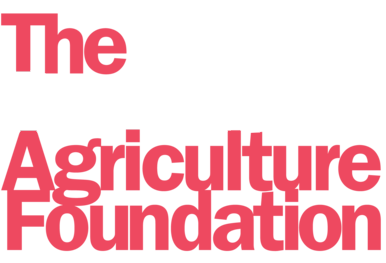One Year Later: The Impacts of Covid on Our Mental Health
March 16, 2021
By Lesley Kelly, Farmer and Co-Founder of the Do More Agriculture Foundation
March marks one year since Canada and most of the world grounded to a halt and declared Covid-19 a global pandemic. We all remember the last day in the office, at school, out to dinner, at a party or visiting family. Each of us may have a different example of our personal mark of "before" and "after" life in the pandemic, yet the fast-approaching one-year anniversary of lockdown is bound to bring up difficult feelings. For a lot of us, it’s been a year where we’ve experienced upsetting thoughts, feelings, and memories.
The pandemic's abrupt and profound change in our lives, compounded for so many by illness and/or care taking and grief, has been largely felt as a stressful and traumatic event. Trauma is classified as something that typically involves a death, a brush with death or a fear of death, with examples ranging from accidents and serious illnesses to physical attacks and natural disasters. Whatever the specifics of the event, reactions to this one-year anniversary will be varied and can be an upsetting and exhausting reminder, throwing us back into those initial feelings of panic and fear.
Within agriculture, our experiences over the last twelve months have also varied. Stressors ranged from the shut down of processing plants, delayed travel for and the lack of foreign workers, high feed costs, and adjustments and shifts in demand in our food system, to name a few while some may not have experienced any changes on the farm with Covid.
While some experiences are shared and others unique, you’re not alone if a year of restrictions, lockdowns and uncertainty has made you:
Have ups and downs with your mental and physical health
Appreciate making it through one day at a time
Feel helpless and frustrated with uncertainty
Struggle with grief, loss and loneliness
Become more aware of your self care, or lack thereof
Question the status quo and your social environment
Use both old and new coping skills to help you get by
Feel tired and fatigue for no apparent reason
Become angry at the loss of time and experiences with others
Become more reserved and introverted
Get used to functioning in a survival, basic and sustainable level
Appreciate the small things in everyday life
Reflect to see how much we have grown and changed
Create new traditions with family and friends
Through all of our different and shared experiences, there is a commonalty that remains true - we are all going through this together.
We’ve gone through a year of the pandemic - together.
We will get through this pandemic - together.
With March, comes spring, brighter and warmer days, new life, optimism and replenished hope. Each day comes stories of those in the country getting vaccinated and we’ve seen greater attention and investments made into the mental health care system. We also continue to hear stories within our communities and within ourselves of resiliency and inspiration. Through the hard times of Covid, it has also let in new light. Throughout history, hope has risen from the ruins. There is so much room to be hopeful for what comes next. And it’s worth fighting for.
If you or someone you know needs help, reach out for mental health support by visiting Do More Ag resources.
The Do More Agriculture Foundation is not intended to be a substitute for professional medical advice, diagnosis, or treatment. If you are in crisis, please visit your local emergency department or call 911 immediately.

